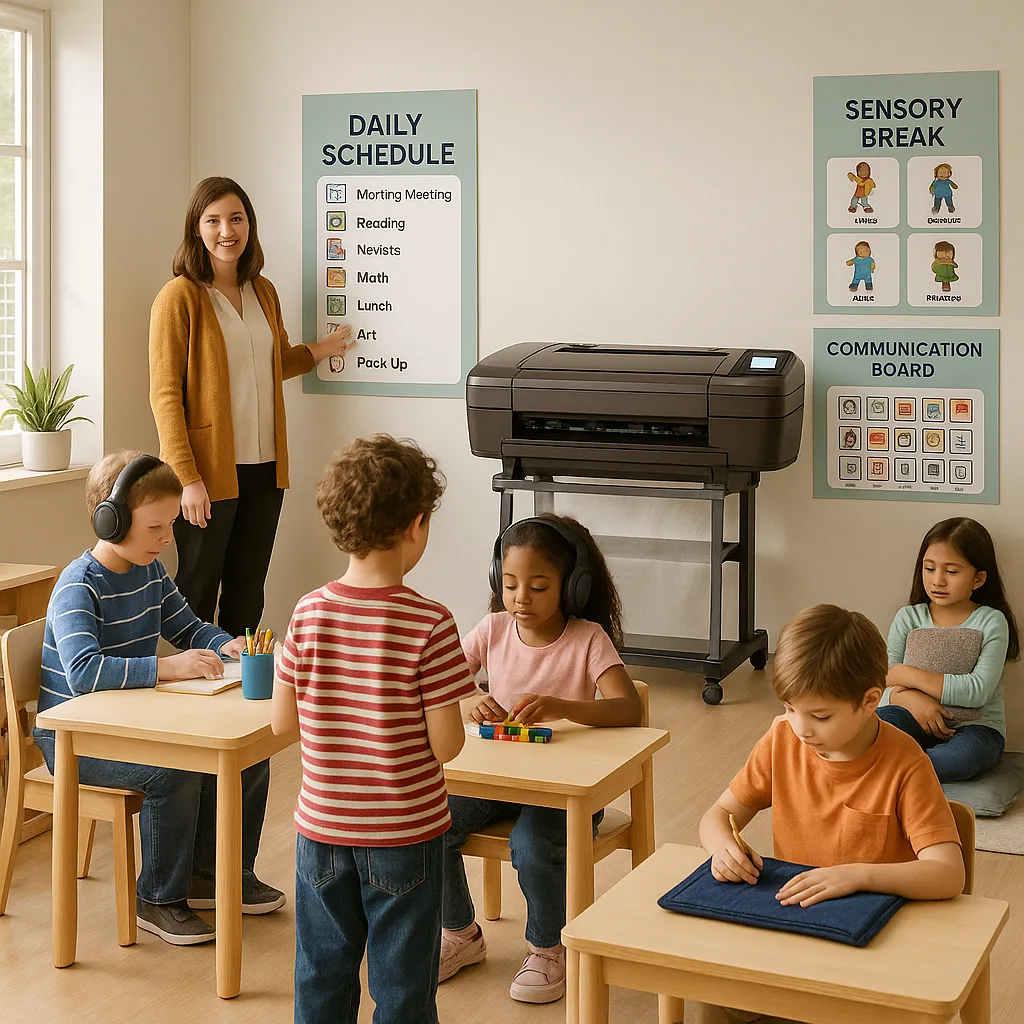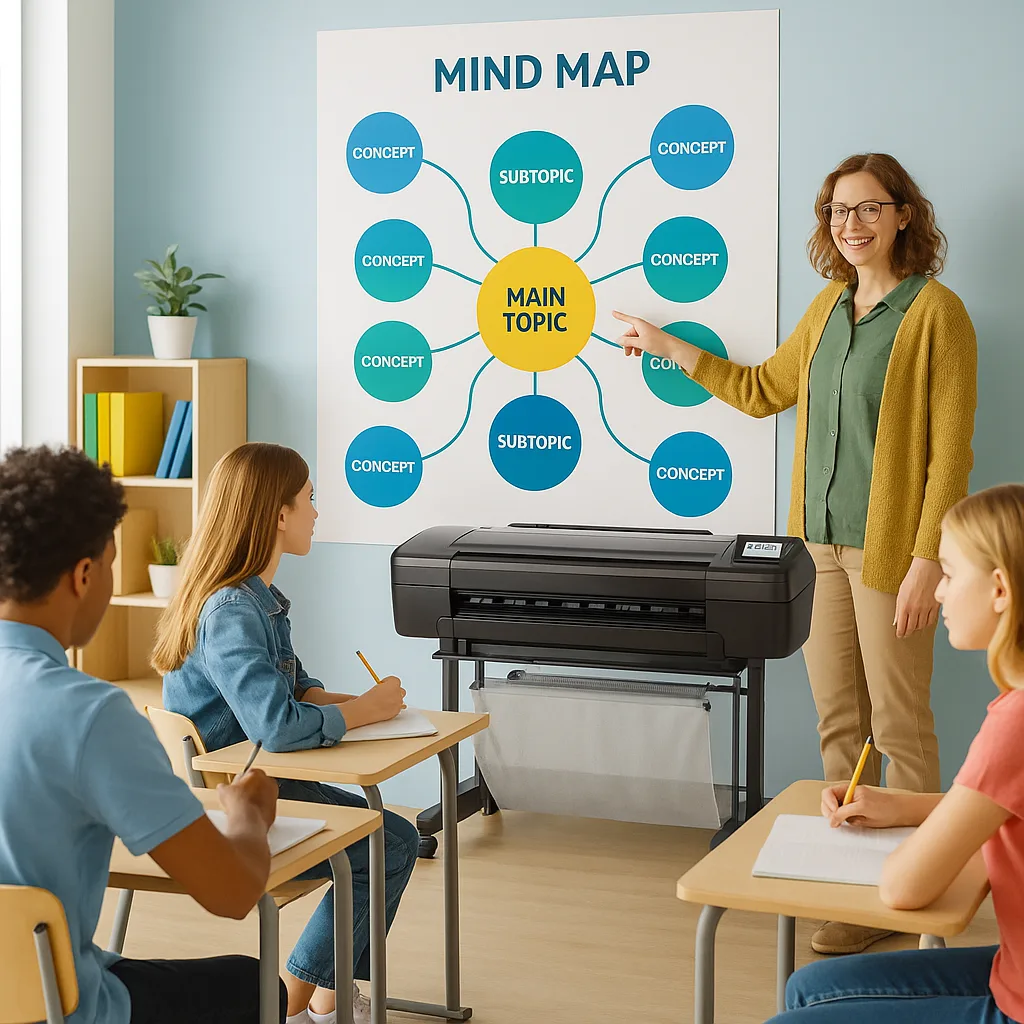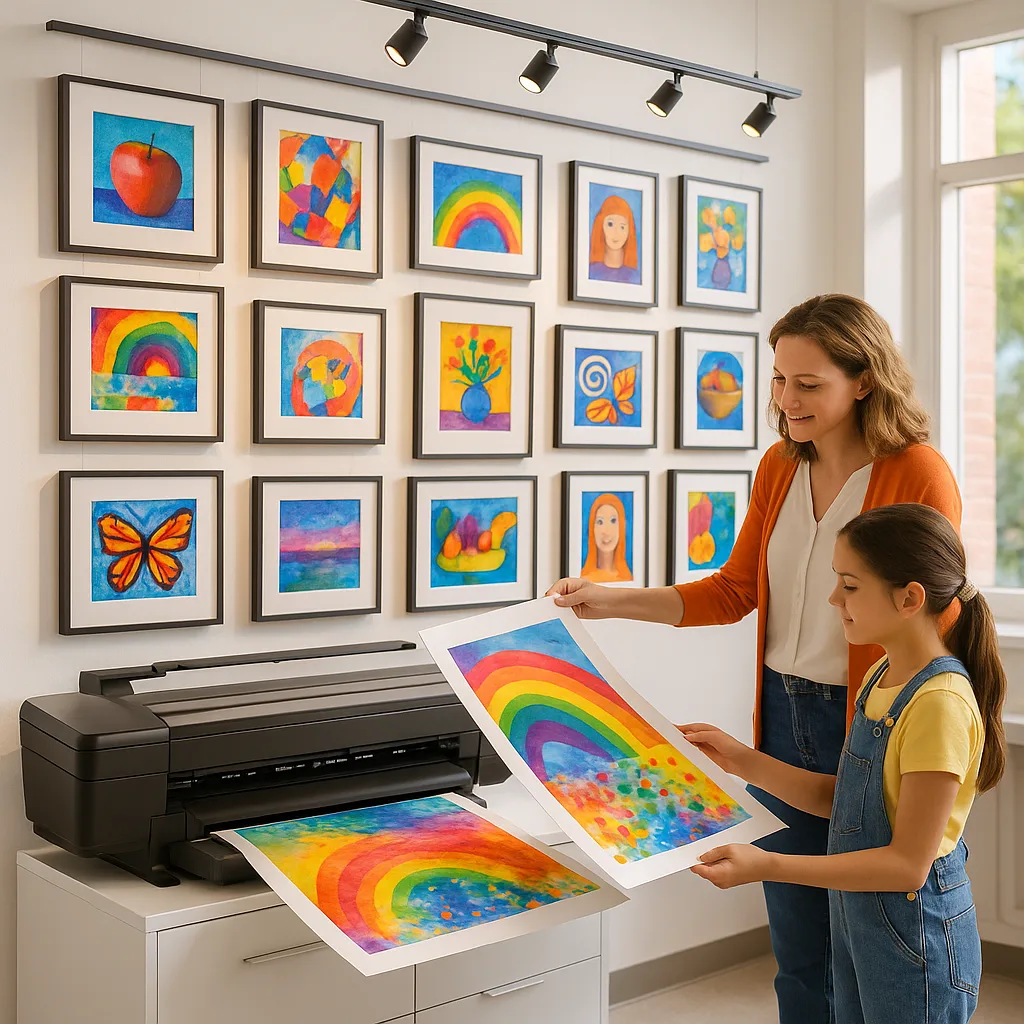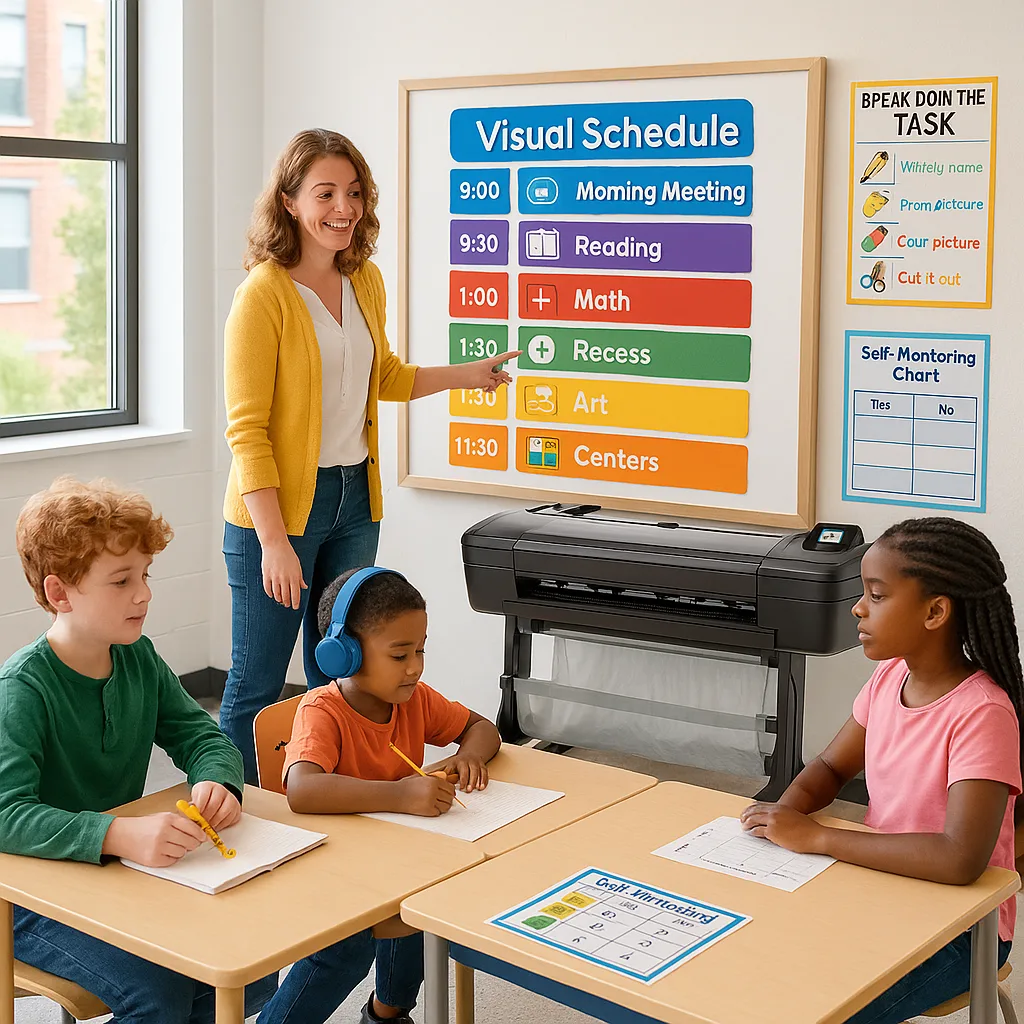
Poster Maker for Schools Executive Function Systems
Executive function challenges affect millions of students across K-12 classrooms, particularly those with ADHD, autism, and learning differences. When these students struggle with organization, time management, and task initiation, their academic potential remains locked behind invisible barriers. Visual scaffolding offers a research-backed solution that transforms abstract concepts into concrete, manageable systems. By leveraging a poster maker for schools executive function support, educators can create customized visual tools that promote independence while reducing cognitive overwhelm.
Why Visual Organization Systems Transform Executive Function
Research from the Children and Adults with Attention-Deficit/Hyperactivity Disorder (CHADD) demonstrates that visual supports significantly improve executive function performance in students with neurodevelopmental differences. Furthermore, these tools work by externalizing cognitive processes that typically occur internally. When students can physically see their schedule, task steps, or behavior goals, they expend less mental energy on remembering and organizing information.
Additionally, visual scaffolding addresses multiple executive function domains simultaneously. For instance, a well-designed schedule board supports time awareness, task prioritization, and transitional planning. Meanwhile, task breakdown posters help with goal setting, sequential processing, and completion monitoring. Therefore, investing in quality visual organization systems delivers compound benefits across academic and behavioral domains.
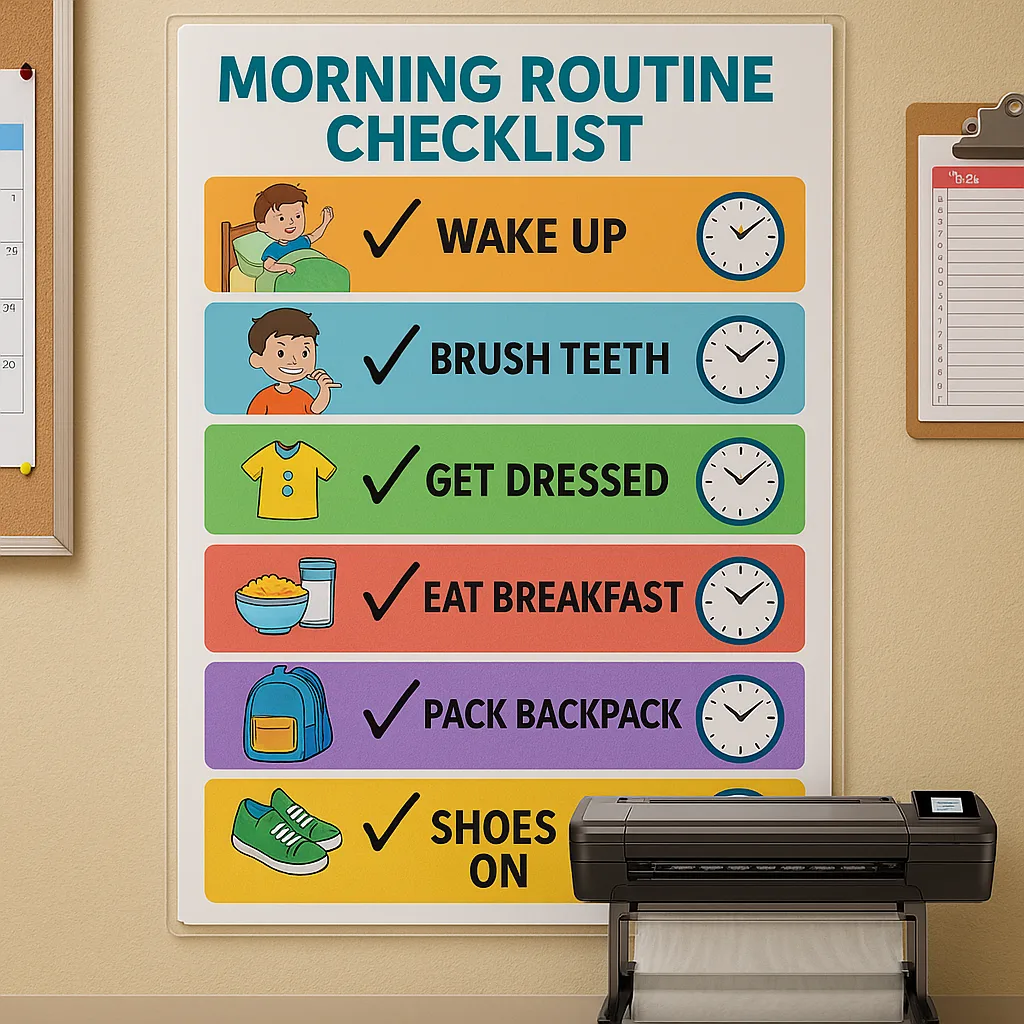
The Neuroscience Behind Visual Supports
Executive function encompasses three core components: working memory, cognitive flexibility, and inhibitory control. Students with ADHD often show deficits in all three areas, while those with autism may particularly struggle with cognitive flexibility. Consequently, traditional verbal instructions or written lists frequently fail to provide adequate support.
Visual organization systems bypass these challenges through several mechanisms. First, they reduce working memory load by providing external storage for information. Second, they enhance cognitive flexibility by making abstract concepts concrete and manipulable. Finally, they support inhibitory control by creating clear boundaries and expectations. As a result, students can allocate their limited cognitive resources to learning rather than organizing.
Essential Visual Organization Tools Using Poster Maker for Schools Executive Function Support
Schedule Boards
Visual schedules provide temporal structure and reduce transition anxietyDesign Elements
- Time blocks with color coding
- Visual icons for each activity
- Moveable components for flexibility
- Clear start and end markers
- Built-in transition warnings
Task Breakdown Charts
Complex assignments become manageable through visual decompositionImplementation Tips
- Step-by-step visual guides
- Checkbox completion tracking
- Time estimates per step
- Materials needed lists
- Progress celebration points
Self-Monitoring Systems
Students track their own progress and develop metacognitive awarenessKey Components
- Behavior rating scales
- Goal thermometers
- Success counters
- Reflection prompts
- Data visualization charts
Routine Builders
Consistent routines reduce decision fatigue and increase automaticityStructure Elements
- Morning arrival sequences
- Homework completion flows
- End-of-day checklists
- Transition protocols
- Emergency routine guides
Research-Based Design Principles for Maximum Impact
Creating effective visual organization systems requires more than colorful posters. According to research from the Understood.org learning differences resource center, successful visual supports follow specific design principles that maximize cognitive accessibility.
Clarity Improvement
Students show 85% better task understanding with visual supports versus verbal instructions alone
Independence Gains
Visual scaffolding reduces teacher prompting needs by 72% for executive function tasks
Retention Rate
Students retain organizational strategies 91% better with consistent visual reinforcement
Key Design Elements for Poster Maker for Schools Executive Function Tools
Consistent Color Coding: Establish a school-wide color system where specific colors represent different subjects, activities, or behavioral zones. For example, math might always appear in blue, while transition times use yellow. This consistency reduces cognitive load as students move between classrooms.
Strategic White Space: Avoid overwhelming students by maintaining 30-40% white space on all visual supports. Cluttered designs increase processing demands and may trigger anxiety in sensitive students. Therefore, less truly becomes more when designing for executive function support.
Hierarchical Information: Present information in clear levels of importance using size, color intensity, and positioning. Primary information should appear largest and most prominent, with supporting details progressively smaller. Subsequently, students can quickly identify essential elements without parsing entire displays.
Interactive Elements: Include moveable components like velcro cards, sliding markers, or erasable sections. These tactile features engage multiple sensory channels and allow students to physically manipulate their organization systems. Moreover, the kinesthetic engagement reinforces learning and memory.
The Education Express 24″ Poster Maker Package A provides educators with professional-quality printing capabilities for creating these essential visual supports. With its user-friendly design software and vibrant color output, teachers can quickly produce customized organization systems tailored to individual student needs.

Professional Visual Supports
Implementation Strategies That Ensure Success
Creating visual supports represents only the first step. Successful implementation requires thoughtful introduction, consistent use, and ongoing adaptation based on student feedback and data.
Model usage during whole-class instruction. Practice with guided support.
Students use systems with peer support. Teachers provide prompts as needed.
Reduce prompts systematically. Students self-monitor progress.
Regular check-ins. Adjust systems based on data and feedback.
Measuring Success: Data-Driven Visual Support Systems
Effective visual organization systems produce measurable improvements in student performance. Therefore, establishing baseline data before implementation allows educators to track progress and justify continued investment in visual support creation.
Key metrics to track include task completion rates, time-on-task measurements, behavioral incident frequencies, and student self-reported confidence levels. Additionally, collecting photo documentation of student work before and after implementation provides compelling visual evidence of improvement.
The Lifetime Design Service from Poster Studio Express ensures your visual supports remain current and effective. Their human designers understand educational contexts and can create materials that align with specific IEP goals, behavior intervention plans, or classroom management systems.
Transform Your Classroom Today
Visual scaffolding represents more than accommodation—it’s empowerment.
When students with executive function challenges gain access to well-designed visual organization systems, they develop skills that extend far beyond the classroom. These tools foster independence, build confidence, and create pathways to academic success that might otherwise remain blocked.
Investing in a best poster maker for schools enables educators to create professional-quality visual supports quickly and affordably. Rather than relying on generic, one-size-fits-all materials, teachers can customize every aspect to meet their students’ unique needs.
Questions about implementing visual scaffolding in your school? Call the experts at 866-788-7900 for personalized guidance on selecting the perfect poster-making solution for your executive function support needs.

